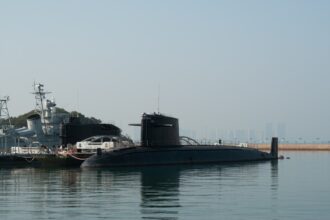Russian intelligence has long been a subject of intrigue and speculation, captivating the imaginations of historians, political analysts, and the general public alike. The complex web of espionage, covert operations, and strategic intelligence gathering has played a pivotal role in shaping not only Russia’s national security but also its international relations. As a formidable player on the global stage, Russian intelligence agencies have evolved over the decades, adapting to new challenges and opportunities in an ever-changing geopolitical landscape.
The significance of Russian intelligence extends beyond mere espionage; it encompasses a rich tapestry of history, culture, and ideology. From the early days of the Tsarist regime to the modern era of cyber warfare and disinformation campaigns, Russian intelligence has consistently sought to protect national interests while projecting power abroad.
This article aims to delve into the multifaceted world of Russian intelligence, exploring its historical roots, operational methods, and the ethical implications of its activities in contemporary global politics.
Key Takeaways
- Russian intelligence has a long and complex history, with a significant impact on global politics.
- The role of Russian intelligence in international affairs is multifaceted and has evolved over time.
- The documentary explores the methods and techniques used by Russian intelligence, shedding light on their tradecraft.
- Russian intelligence operations have had a significant impact on global politics and continue to influence international relations.
- The future of Russian intelligence and tradecraft is uncertain, but it will likely continue to play a significant role in global affairs.
The History of Russian Intelligence
The origins of Russian intelligence can be traced back to the 16th century, during the reign of Ivan the Terrible. The Tsar established a network of informants and spies to monitor dissent and consolidate power. This early form of intelligence gathering laid the groundwork for more sophisticated operations in subsequent centuries.
The establishment of the Okhrana in the late 19th century marked a significant evolution in Russian intelligence capabilities, as it focused on countering revolutionary movements and maintaining state security. The tumultuous events of the 20th century further transformed Russian intelligence.
This agency was instrumental in suppressing opposition and consolidating Bolshevik power. Over time, the Cheka evolved into the KGB, which became synonymous with espionage during the Cold War. The KGB’s extensive network of spies and informants operated globally, gathering intelligence on Western powers while conducting covert operations that would shape international relations for decades.
The Role of Russian Intelligence in International Affairs

Russian intelligence has played a crucial role in shaping the country’s foreign policy and international relations. By gathering critical information about adversaries and allies alike, Russian intelligence agencies have provided policymakers with insights that inform strategic decisions. The ability to anticipate threats and opportunities has allowed Russia to navigate complex geopolitical landscapes effectively.
In recent years, Russian intelligence has been at the forefront of several high-profile international incidents, including election interference and cyberattacks. These operations have not only demonstrated Russia’s capabilities but have also raised questions about the ethical implications of such actions. As nations grapple with the consequences of these intelligence activities, it becomes increasingly clear that Russian intelligence is not merely a tool for statecraft but a significant player in shaping global political dynamics.
The Documentary’s Exploration of Russian Tradecraft
| Aspect | Metrics |
|---|---|
| Duration | 120 minutes |
| Number of interviews | 10 |
| Locations visited | 5 |
| Number of experts consulted | 15 |
Documentaries exploring Russian intelligence often provide a fascinating glimpse into the world of espionage and tradecraft. These films delve into the techniques employed by Russian operatives, showcasing their ability to blend into various environments while gathering sensitive information. Through interviews with former spies, analysts, and historians, viewers gain insight into the psychological and strategic aspects of espionage.
One notable documentary highlights the art of disguise and deception that is central to Russian tradecraft. It illustrates how operatives are trained to adopt new identities, manipulate their surroundings, and exploit vulnerabilities in their targets. Such portrayals not only entertain but also educate audiences about the complexities involved in intelligence operations, revealing that successful espionage often hinges on meticulous planning and execution.
The Methods and Techniques Used by Russian Intelligence
Russian intelligence employs a diverse array of methods and techniques to achieve its objectives. Traditional espionage tactics such as human intelligence (HUMINT) remain vital, with operatives often infiltrating organizations or establishing relationships with key individuals to gather information. Additionally, signals intelligence (SIGINT) plays a crucial role in intercepting communications and monitoring electronic data.
In recent years, cyber capabilities have emerged as a cornerstone of Russian intelligence operations. The use of hacking, malware, and social media manipulation has allowed Russian agencies to conduct operations that transcend traditional boundaries. These modern techniques enable them to influence public opinion, disrupt critical infrastructure, and gather intelligence without the need for physical presence.
As technology continues to evolve, so too do the methods employed by Russian intelligence, making it imperative for nations to adapt their counterintelligence strategies accordingly.
The Impact of Russian Intelligence Operations

The impact of Russian intelligence operations extends far beyond immediate national security concerns; it reverberates throughout global politics and international relations. High-profile incidents such as the poisoning of former spy Sergei Skripal in the UK or interference in U.S. elections have drawn widespread condemnation and led to diplomatic tensions between Russia and other nations.
These actions not only undermine trust but also contribute to an atmosphere of suspicion that complicates diplomatic efforts. Moreover, Russian intelligence operations often serve as a catalyst for broader geopolitical shifts. By leveraging disinformation campaigns or cyberattacks, Russia can destabilize regions or influence political outcomes in ways that align with its strategic interests.
This ability to shape narratives and manipulate perceptions has profound implications for global stability, as nations grapple with the challenges posed by hybrid warfare and non-traditional threats.
The Evolution of Russian Intelligence Tradecraft
The evolution of Russian intelligence tradecraft reflects broader changes in technology, society, and international relations. Historically rooted in traditional espionage methods, Russian intelligence has adapted to incorporate modern techniques that leverage advancements in technology. The rise of digital communication has transformed how information is gathered and disseminated, prompting agencies to refine their approaches to meet new challenges.
As geopolitical tensions escalate, Russian intelligence continues to innovate its tradecraft. The integration of artificial intelligence and machine learning into intelligence analysis represents a significant shift in how data is processed and interpreted. This evolution not only enhances operational efficiency but also allows for more sophisticated predictive modeling that can inform strategic decision-making at higher levels.
The Ethical and Moral Implications of Russian Intelligence Activities
The ethical and moral implications surrounding Russian intelligence activities are complex and multifaceted. On one hand, proponents argue that states have a legitimate right to protect their national interests through espionage and covert operations. However, critics contend that many actions taken by Russian intelligence cross ethical boundaries, particularly when they involve targeting civilians or undermining democratic processes.
The use of disinformation campaigns raises significant ethical questions about the manipulation of public opinion and the erosion of trust in democratic institutions. As nations grapple with these challenges, it becomes increasingly important to establish norms governing state behavior in the realm of intelligence operations. Balancing national security interests with ethical considerations remains a contentious issue that will shape future discussions on global governance.
The Influence of Russian Intelligence on Global Politics
Russian intelligence has exerted considerable influence on global politics through its strategic operations and interventions. By leveraging its capabilities in espionage and cyber warfare, Russia has been able to assert itself as a formidable player on the world stage. This influence is particularly evident in regions where Russia seeks to expand its sphere of influence or counter Western dominance.
The impact of Russian intelligence is not limited to direct interventions; it also manifests through alliances with other nations that share similar interests or adversarial stances toward Western powers. By fostering relationships with countries facing sanctions or isolation, Russia can create a network of support that bolsters its geopolitical ambitions while challenging established norms in international relations.
The Future of Russian Intelligence and Tradecraft
Looking ahead, the future of Russian intelligence and tradecraft is likely to be shaped by ongoing technological advancements and evolving geopolitical dynamics. As artificial intelligence continues to transform various sectors, including defense and security, Russian intelligence agencies will likely invest heavily in these technologies to enhance their capabilities further. Moreover, as global tensions persist, Russia may continue to rely on unconventional methods to achieve its objectives.
The interplay between traditional espionage techniques and modern cyber capabilities will define how Russian intelligence operates in an increasingly interconnected world. Understanding these trends will be crucial for policymakers seeking to navigate the complexities of international relations in the years to come.
Understanding the World of Russian Intelligence
In conclusion, the world of Russian intelligence is characterized by a rich history, complex methodologies, and profound implications for global politics. From its early origins to its modern-day operations, Russian intelligence has evolved significantly while remaining a critical component of national security strategy. As nations grapple with the challenges posed by espionage and covert operations, understanding the intricacies of Russian tradecraft becomes essential for navigating an increasingly complex geopolitical landscape.
The ethical considerations surrounding these activities cannot be overlooked; they raise important questions about state behavior and accountability in an era marked by rapid technological change. As Russia continues to assert its influence on the global stage through its intelligence operations, it is imperative for other nations to remain vigilant while fostering dialogue aimed at establishing norms that govern state conduct in this critical domain. Ultimately, comprehending the world of Russian intelligence is vital for anyone seeking to understand contemporary international relations and the forces shaping our future.
In exploring the intricate world of Russian intelligence tradecraft, one might find it beneficial to delve into related discussions that provide broader context and insights. A particularly relevant article can be found on the website “In The War Room,” which offers a comprehensive analysis of various intelligence operations and their implications. This article not only complements the documentary on Russian intelligence but also expands on the strategic maneuvers and historical precedents that have shaped modern espionage tactics. For those interested in a deeper understanding, you can read more about these topics by visiting In The War Room.
WATCH THIS! The FSB’s Hidden War on Europe’s Pipelines
FAQs
What is the documentary about?
The documentary focuses on the tradecraft and tactics used by Russian intelligence agencies.
Who is the target audience for the documentary?
The documentary is aimed at individuals interested in espionage, intelligence operations, and Russian foreign policy.
What topics are covered in the documentary?
The documentary covers a range of topics including espionage techniques, covert operations, cyber warfare, and the history of Russian intelligence agencies.
Is the documentary based on real events and information?
Yes, the documentary is based on real events, historical information, and expert analysis of Russian intelligence tradecraft.
Is the documentary biased in any way?
The documentary aims to provide an objective and factual analysis of Russian intelligence tradecraft, without bias or political agenda.
Where can the documentary be viewed?
The documentary may be available for viewing on streaming platforms, through online rental or purchase, or through television networks that specialize in documentary programming.




